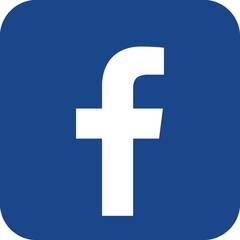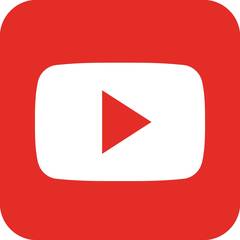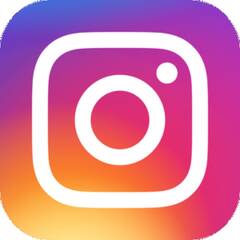OUR CERTAIN COMMUNITY
04/27/2020 03:13:05 PM
By John Schneider, MD and Temple Israel member
 I hope everyone reading this has found light in these turbulent times. I have been fortunate to have some time away from my job as a surgeon to be more present for my family, both near and far. One moment of truly good feelings was being able to participate in two simultaneous Passover Seders online this year. One with my father’s side of the family in New Jersey, and the other with my wife’s side in Chicago. And after a few weeks of social distancing I was really glad to connect and reconnect with family who I hadn’t seen in some time. And those moments have appeared in places I haven’t expected. We’ve had weekly Zoom sessions with my Mother’s side of the family, the non-Jewish side, and I’ve been able to see my cousins and aunts and uncles who I otherwise see once a year. I reconnected with my college friends who I haven’t seen in maybe 10 years! I’ve had sessions with my residents (doctors in training) that would have been difficult to schedule where we have explored together some the psychology of health care. When I have a moment to step back, the connections I’ve made over the past few weeks have been incredible and wonderful.
I hope everyone reading this has found light in these turbulent times. I have been fortunate to have some time away from my job as a surgeon to be more present for my family, both near and far. One moment of truly good feelings was being able to participate in two simultaneous Passover Seders online this year. One with my father’s side of the family in New Jersey, and the other with my wife’s side in Chicago. And after a few weeks of social distancing I was really glad to connect and reconnect with family who I hadn’t seen in some time. And those moments have appeared in places I haven’t expected. We’ve had weekly Zoom sessions with my Mother’s side of the family, the non-Jewish side, and I’ve been able to see my cousins and aunts and uncles who I otherwise see once a year. I reconnected with my college friends who I haven’t seen in maybe 10 years! I’ve had sessions with my residents (doctors in training) that would have been difficult to schedule where we have explored together some the psychology of health care. When I have a moment to step back, the connections I’ve made over the past few weeks have been incredible and wonderful.
It’s hard because despite all of those connections, when I speak to my patients at the hospital or over the phone, our conversations feel different. I have always tried to put my patients’ safety first, and in these times it feels more challenging. As an Ear, Nose, and Throat physician who specializes in Sinus Surgery, many of my patient's conditions fall into the “elective” category. In the current health care environment we’ve accepted that certain medical conditions that do not immediately threaten life or function will have to wait for certain treatments like surgery. The reasoning behind this has been to both preserve the limited health care resources for COVID-19 related patient care and to keep our healthier patients home and away from the hospitals. This doesn’t mean that patients don’t need or deserve the care we would provide in a pre-COVID environment. Physicians in every specialty are limited and so the normal environment of health care has been radically altered. The normal routine of face to face connection that has been the foundation of the patient-doctor relationship is interrupted. Even when I have seen patients in the hospital, it’s behind the barrier of a mask. Unfortunately, the care can feel uncomfortable and impersonal for all of us.
I have a special interest in the psychology of health care, and my research focuses on communication in health care from a cognitive psychology perspective. So, I have a particular lens on the world and with that comes a biased view. But when I’ve talked with my college friend who is a urologist, my colleagues, or my cousins who are both physicians, they too feel uncomfortable in this restricted state of health care. There is worry that we aren’t doing enough, or that we are under-treating, or that we are being forced to ration care in ways that we shouldn’t have to. But there is also worry because all of us as physicians become the patients or family members of patients at some point. My aunt and uncle are in their 90s and live in assisted living in New Jersey. Their daughter, and oncologist, expressed to me the anxiety of caring for them from a distance. My mother, who’s relatively healthy, is on her own in Washington DC and we are helping her remotely. But it’s anxiety provoking.
I have tried over many years to understand where anxiety comes from. We all face it in our own ways. But this period in our history has introduced anxiety on a scale that many of us have not felt. We know of it’s weight because of our history. Yom HaShoah was this week, and I remember listening to my father’s recollections growing up in the Jewish community in the 1940s in New York. Although he was born here, he carried the Holocaust with him his entire life because of the anxiety it created in his home and community. Many of us are generations removed from it, but it still is present through our remembrance. When I saw the Nazi symbols unfurled at a Bernie Sanders rally, the anxiety is activated. And when I go to the hospital to see patients, I feel a different but still visceral anxiety regarding this virus. And just this morning, my daughter found a tick starting to bite her and her first question (once we removed it) was “am I going to get Lyme disease?”
It is easy to assuage another’s anxiety, but quite another to reduce your own. And we are all managing it right now. Whether related to our jobs, finances, health, family, or all of it, we are faced with often enormous uncertainty. And that uncertainty is what drives the anxiety. The “what’s next” questions. These are the central questions we face every minute of every day. In good times, these questions can feel positive. What’s next when we get that tax refund? What’s the next thing we can purchase? What’s next when my daughter graduates? What’s the best college she can attend? But in times of hardship and threat, these questions are scary. What’s next if I get exposed to COVID? What’s next if I lose my job? And for my patients, what’s next if we can’t cure this?
The question feels scary, and it can make us feel alone. We were already living in a contentious and conflictual world. The rhetoric of our politics and our culture feels hateful to many of us. And for some of us that rhetoric gives us comfort that we are not part of the group we denigrate. These are not new behaviors, as Yom HaShoah reminds us. We are doomed to repeat history as many have said, maybe because our discomfort with the question of what’s next is too visceral. Protecting our own community at the expense or neglect of another can be a natural response. But this doesn’t reduce our uncertainty, it simply distracts us from our own discomfort.
And so we live with uncertainty, and we always have. It changes over our life, but we will never escape it nor will we be able to reduce it entirely. If we face it alone, it can seem insurmountable. But through the often loud, divisive rhetoric of our world I see the communities that have come together in so many ways to not ignore the uncertainty and anxiety, but to offer the certain truths that bonds us as human beings. We may not be able to answer what’s next every time. But if we can say that we will be there to support each other despite the uncertainty, then we can collectively know the certainty of community. I have seen us come together for our members who have faced this virus personally. I have received personal notes from my patients thinking of me throughout all of this, despite their own health concerns. I see the grateful patients in the hospital who, while anxious about their own health, feel better knowing that we are there to help them. And on a personal note, I feel grateful that the people I get to help are helping others in their own ways in all of this. I am not from St. Louis, and never felt like I had much of a community even growing up. But in the last few weeks, I am very happy that we are here because of the strength of the people we have gotten to know here.
Community can give us the strength to face the uncertainties of life, but we must choose to engage in it. In normal times it’s easier because we don’t think twice about attending services or volunteering. It is harder now, because of our physical separation. But we have a moment to reflect on how we connect with each other. We can choose to connect and look for the things that can bring us together. We can choose to ignore the differences and seek the bonds that unite us. We don’t always know what is next, but we can know that together we will be stronger no matter what we will see.
John S. Schneider, MD, MA, FACS
Assistant Professor
Rhinology and Anterior Skull Base Surgery
Department of Otolaryngology
Washington University School of Medicine



